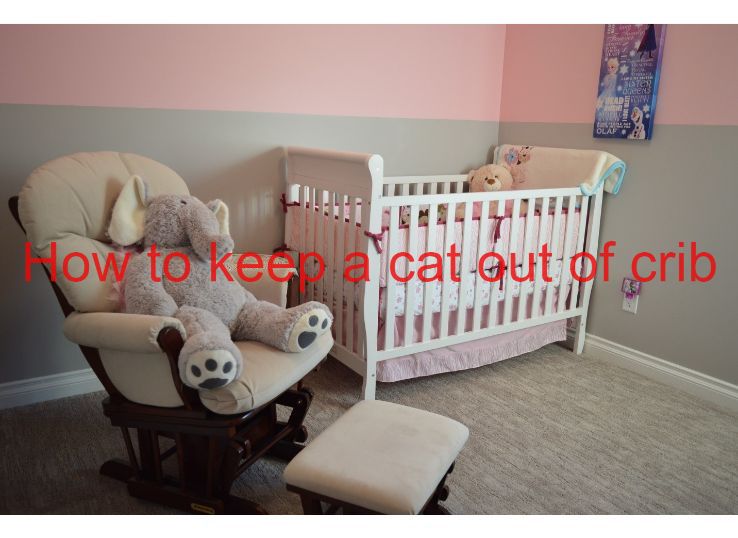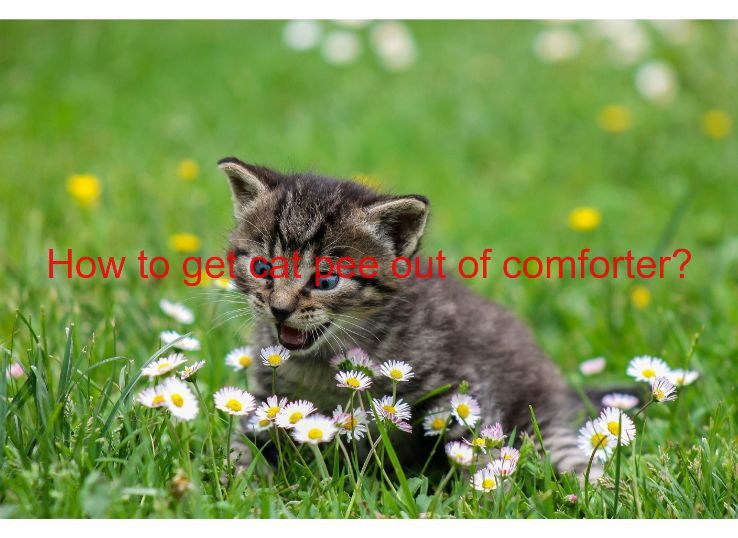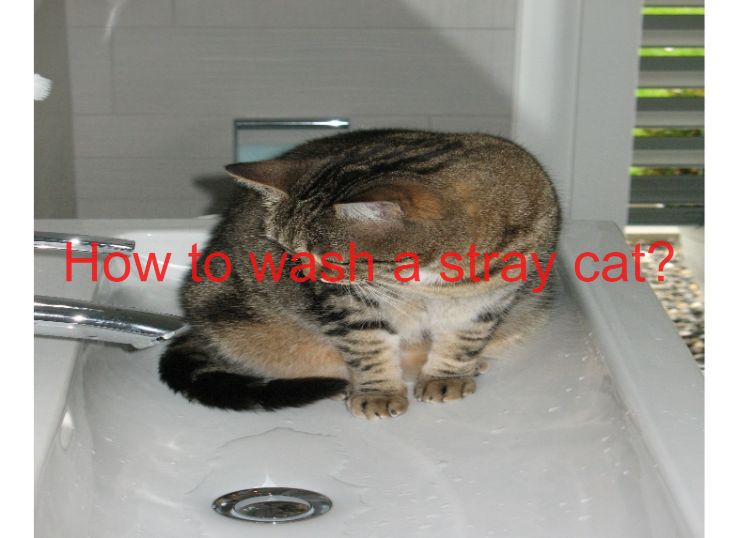How to keep a cat out of Crib of Babies: Latest Guide?

The curiosity of cats is natural, so, normally, they’d want to inspect the new crib. Hence, one of the most frequently asked questions by new moms with cats is how to keep a cat out of the crib.
Babies do not have the immunity to fight diseases carried by cats. Also, cats can make it hard to breathe. Even the gentlest cat can scratch the baby if it feels threatened. The cat can injure the baby if it walks on it.
Preventing the cat from entering the crib altogether is the best option. Let’s explore all the ways you can keep your cat out of the crib in this guide.
Table of Contents
How to Keep You a cat out of the Crib?
There are several options that you can consider before the baby arrives to keep your cat-free areas safe, but you can still solve the problem even after the baby has arrived and your cat has intruded. You and your family should consider these options.
Early Setup of the Crib
As soon as the crib is in place, you will be able to watch how your cat reacts to it, and even more importantly, how it attempts to enter.
It helps you to see how your cat might get inside when the baby is born so you can prevent it from happening. If you want to keep your cats away from your babies, use a cat-proof crib cover.
Install a Screen Door
You can allow your cat to supervise your baby from afar while your baby is with you, which makes the whole experience less stressful for them.
Your cat can have a good view and smell your baby through a screen door in the nursery without getting into the crib. In contrast to crib nets, which may be potentially dangerous, this is a better choice.
Make Sure the Crib Is Not Near Furniture
Cats can launch themselves into the crib from bookshelves, chairs, and the changing table. The items around a crib, especially if it has side rails, should be moved to prevent injury to the baby.
Make Room for Cat
The only thing you need to worry about is your cat’s fascination with the infant. Animals understand the significance of a baby to a family and will naturally want to be around them. Give your cat an alternative to sleeping in the crib by setting up a perch or a bed on the other side of the room.
Light Scolding
The cat should be removed immediately from the crib and told a firm “No,” then placed in a place where it’s allowed, such as a comfortable bed or a new crib for cats.
Put the cat in a preferred area of the house after taking him out of the crib and saying. It may take time to train your cat, so be patient and begin early.
Make the Crab Less Appealing
Make the bottom of the crib noisy with something loud. Usually, the noise is enough to scare your cat out of the room when it jumps in. The best time to use a noise trap is when you will not be at home to supervise or train your cat.
When your baby is in the crib, you should never use a noise trap. When your baby comes home, your cat will realize that the crib is not the best place for nap time and will leave.
Crib tent
Crib tents keep toddlers from climbing out of cribs by providing a cover on top of them. Sometimes, they also keep cats out of the crib. Make sure to take safety precautions due to the crib tent’s potential danger.
Close the door to your baby’s room.
It’s perhaps easiest to keep a cat out of a crib if you don’t allow them to enter the room. Ensure that the door to the crib is always shut-in order to teach your cat there are no pets in there.
Move your cat to another room.
Consider putting the cat in another room while your baby sleeps if you don’t want to leave the baby’s door closed. So, the cat won’t be able to access the crib while your baby is in it, you can keep it in an unused room of the house for nap times and bedtimes.
Prevent Cat-astrophes
Your kitten is a significant part of your family. Besides, a new baby doesn’t need to alter that. Consider all these steps together mentioned above as a team, both pet as well as human, to make sure a safe, pleased, and purr-fact situation for everybody.
Go for introducing your kitten to the sounds as well as smells of your new family member, and generate designated safe regions so they can attain some peace once they require it.
Can Felines and Babies Co-Exist?
Cats characteristically have a status for being territorial, elaborate, unpredictable, and covetous. Not all cats are this way, and several cat moms recognize this — however, they also see the cat was around the home first.
Thus, can a cat admit the arrival of a new, piercing human in their empire? Obviously, they can! Ponder all the different ways you’d formulate an older kid for the entrance of a younger sibling or perhaps how you’d arrive at a new pet to a current one.
Taking steps to tell your cat with your newest member and teaching them in advance to prevent the crib and your babe’s other parts is the best way to guarantee they exist together without harm.
Frequently Asked Questions
Q: Why do cats protect babies?
In children, cats counteract the effect of a gene that increases asthma risk when activated. This gene is never activated for a child if there is a cat in the home at the time of birth.
Q: Is it safe to have a cat around a newborn baby?
If you have a baby or a child sleeping in your room, do not let cats in. Cats are known to sleep near babies’ faces. This can cause serious injury. Your baby may not breathe properly.
Q: Can cats suffocate babies?
Some experts doubt that cats intentionally suffocate sleeping babies, although they may accidentally smother them if they nestle up too close to their faces.
Q: Can Cat sleep in Crib with Babies
Keep the cat out of the crib and other places where the baby sleeps. In the early days, newborns cannot turn over or move their heads, so hugging close to the child’s face by a heat-seeking cat could have a detrimental effect on her breathing.
Conclusion
It doesn’t matter if you have a new baby or not; your cat is still part of the family. Make sure that you and your pet are working together to create a happy, healthy, and perfect environment.
Introducing your pet to a newborn’s sounds and smells is a great way to make them feel comfortable, and you can create specific areas to keep them near the baby.
For you to have enough time to train your cat to stay out of the crib, we recommend purchasing your crib as early as possible. If you cannot be certain that the cat won’t enter the crib, it is best to keep the door closed.
This is especially true for babies still in their cribs. Listed above are the steps you can take to prevent your cat from entering the crib.






